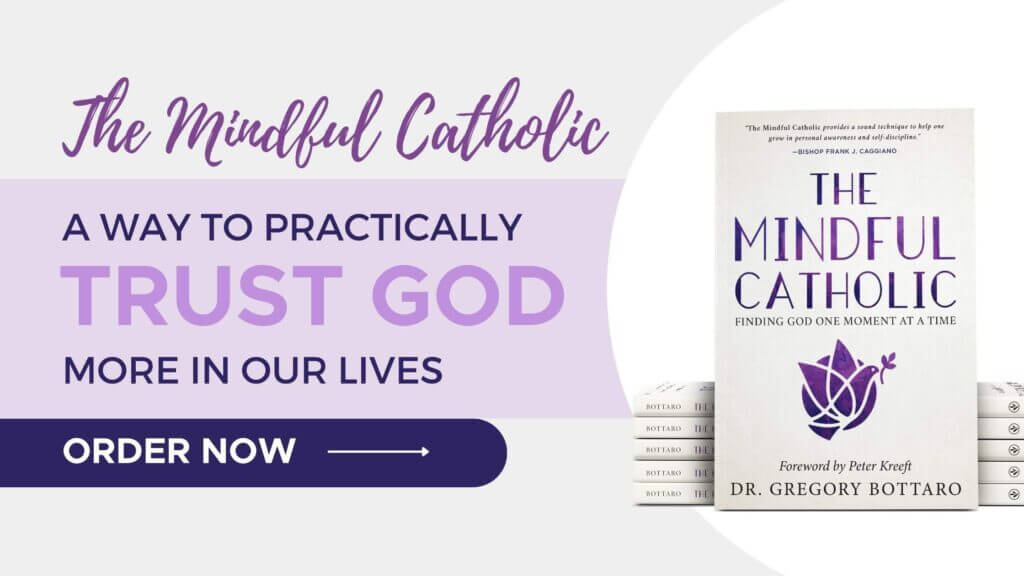
Anxiety is widespread today, let’s talk about mental distractions and how mindfulness is a powerful tool for anxiety.
Anxiety and Mental Distractions
How many times have you set out to get somewhere and you surprise yourself when you get there? “Oh wow, I’m here already?!” If you were driving, you might wonder if you actually stopped at a certain red light because you have no recollection of it, or you wonder in amazement at the fact that you know a route so well you can travel it without thinking about it.
Chances are, you were still thinking, just not about where you were going. Your mind was probably thinking about something else. Many times your thoughts were replays of something that happened in the past, or an attempt to figure out how something is going to go in the future. These thoughts are a kind of anxiety called rumination, and they plague us.
Jesus gave his disciples a clear directive about anxiety. He didn’t say, “You guys should really think about relaxing a little bit,” or “try not to worry too much about that thing coming up that has huge consequences for your life.” He said, “Do not be anxious about the things of your life.” (Mt.6:25)
Jesus’s Directive Against Anxiety
As Catholics, we take the words of Christ pretty seriously. One area we differ from our Protestant brothers and sisters is that we believe when Jesus said, “this is my body” and, “this is my blood,” he actually meant that literally.
The Eucharist is the true presence of Christ’s body and blood. Yet, when Jesus said, Do not be anxious,” we seem to gloss over it, as if to think, “he couldn’t have realllly meant not to be anxious about anything in our life.”
The truth is, he really meant it. He gives us the key to this mystery a bit further down in Matthew 6 when he says to look at the way the Father provides for the birds and the flowers. He makes the point that they don’t worry about where their food comes from or “how they are arrayed”, and they are well taken care of.
Trusting that the Father will provide for us is the key to not being anxious. There is a direct correlation between the amount we trust, and the amount we stress. We can see the effect of this stress in the way our minds run away with themselves.
Our minds start to wander – sometimes frantically – about some mistake we’ve made in the past or some problem we want to avoid in the future, or maybe some interpretation of something going on in the present. We can get lost in these thoughts for 20 minutes without realizing it, and sometimes in extreme cases even for hours! This is not what God wants for us, it is not how he created us to live, and it is not the best we can hope for.
Of course, changing these patterns of thinking isn’t as easy as me telling you to, “trust God.” Even if you have the intention to make an act of faith like that, we are bodily creatures. Our bodies matter, and that means our brains matter. The patterns we’ve developed correlate with neural activity pathways that need to be changed in order for our behavior to change. Our intention based on our faith can set the course, but we need to have a way to actually travel that course.
Catholic Mindfulness – a Tool for Anxiety

You may have heard of something called “Mindfulness,” as it has become extraordinarily popular recently. The reason for this popularity is the fact that an incredible amount of research has shown that practicing the brain exercises that are a part of mindfulness actually changes the neural activity pathways associated with anxiety and depression.
We can look at a picture of a brain before and after 8 weeks of mindfulness training, and see exactly how the exercise has changed the brain, especially in the areas of anxiety and depression. The person doing the practice feels these effects, and they are seen on the brain scan image.
Mindfulness itself is a secular program that simply teaches people how their brains work and how to get control of their racing thoughts. These exercises can be taught and practiced, however, in a very Catholic way. We know that God doesn’t want us to have anxiety. We know that we have a Father we can trust. We know that we aren’t very good at practically trusting Him.
If we believe we can trust the Father, we can use mindfulness to intentionally move our minds on a path set by our faith. By integrating the practice of mindfulness with a foundation of faith, we can use our God given freedom to overcome the anxiety and depression that plagues us.
Far from a contemporary notion of mental illness that proposes we are all slaves to whatever ails us, we have much more freedom than we give ourselves credit for. It’s not easy to change neural activity pathways, or years of learned behaviors, but it is possible.
Mindfulness can be a simple and clear program that helps us learn how to put our faith into practice.
The CatholicPsych Institute has developed a program of Mindfulness that is specifically Catholic. This program integrates a foundation of trusting God’s providence with the standard mindfulness exercises to help people experience ways of breaking patterns of rumination, anxiety, and depression.
Want to learn learn how to easily keep your mind on track so you can pray, get your work done, have a conversation, or do anything else without all the distractions? Check out our 8-Week Catholic Mindfulness Virtual Retreat!

If you like this article check these other related posts:

